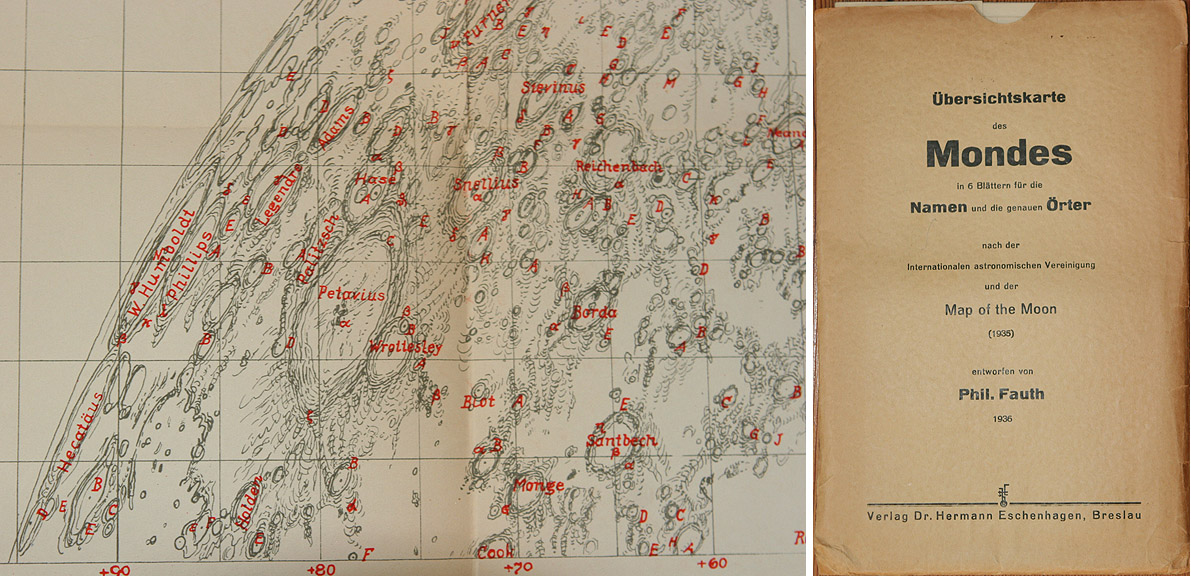
from the collection of Jim Phillips
Phillip Fauth was the last great cartographer of lunar maps derived from visual observing. He issued some wonderful high resolution drawings of specific features in the late 1890s, and his life’s work, a large scale map of the Moon was published in the mid-1960s, two decades after his death. He also created another smaller map of the Moon specifically to illustrate the IAU nomenclature published in 1935 by Mary Blagg and Karl Müller. I don’t know if Fauth thought, as I do, that the B&M map was so bad that a better map was needed, but his small map came out the very next year. I have had a reduced photocopy of the six sheet map but had never seen the real product. Thanks to Jim Phillips, LPOD can share excerpts of Fauth’s forgotten nomenclature map. There are two things in particular to note - one is Fauth’s characteristic style for drawing crater outlines as wormy little lines. They are like lazy hachures that are suggestive of contours. I think I prefer the more stylized simple ovals and circles to denote craters, but Fauth’s map is attractive. Second, is his use of red for names and letters. This works very well, clearly distinguishing the line of a letter from the underlying topography. I can’t think of any other map (except Rükl’s wonderful Atlas of the Moon) that uses color for nomenclature - its a good practice! This map seems to have disappeared, making no impact on the study of the Moon; I’ve not seen it referenced anywhere. That is too bad, for it is much clearer than the B&M map, but then few observers have ever seen that either!
Yesterday's LPOD: Non-Stereo Twosome
Tomorrow's LPOD: Is it Love or a Sinus Infection?
COMMENTS?
Register, Log in, and join in the comments.



